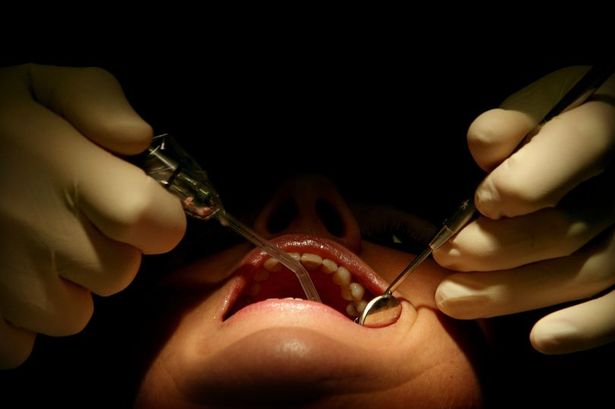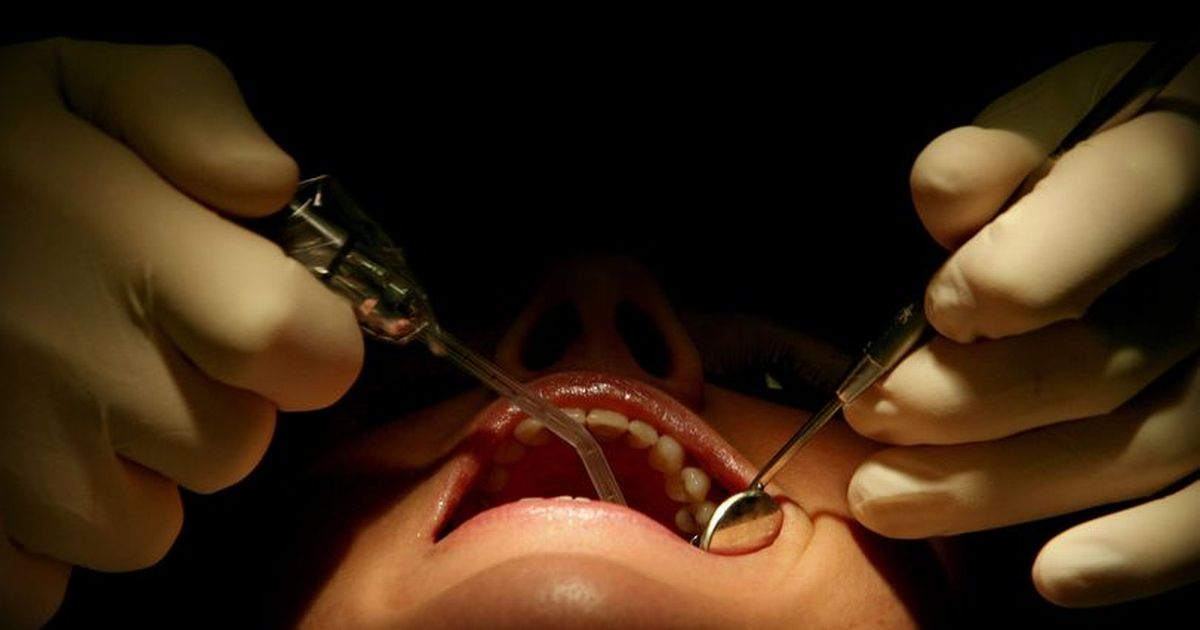Desperate families, decaying teeth and no dentists – inside the NHS meltdown gripping Bristol’s communities Parents are being warned about the impact of sugary snacks, milkshakes, and fruit drinks(Image: Anthony Devlin/PA Wire)
Parents are being warned about the impact of sugary snacks, milkshakes, and fruit drinks(Image: Anthony Devlin/PA Wire)
Access to NHS dental care has become so dire in parts of the country that MPs have described their constituencies as ‘dental deserts’, with patients resorting to A&E, travelling long distances, or paying hundreds – even thousands – for private treatment because they cannot find an NHS dentist.
The crisis came under sharp scrutiny during a Westminster Hall debate, as MPs from across the political spectrum laid bare the toll the shortage of NHS dental provision is taking on their communities.
Claire Hazelgrove, Labour MP for Filton and Bradley Stoke, opened the debate by pointing to a long-standing lack of access to affordable dental care in her area. She said that while canvassing in the run-up to last year’s general election, one issue came up repeatedly on doorsteps: people were simply unable to find or keep an NHS dentist.
She said: “One of the issues raised with me the most was how hard it had become to find and keep an NHS dentist. Listening and acting on what matters locally, I took that campaign up.”
Hazelgrove carried out a local survey to understand the scale of the problem. The results, she said, were damning. Just 31% of respondents reported having an NHS dentist, while nearly all of those who didn’t – 97% – said they would like one. A significant majority, 65%, said they had lost NHS access because their dentist had gone private. She added that 94% backed Labour’s plan to introduce 700,000 new urgent NHS dental appointments annually.
Despite raising these issues before the election, Hazelgrove said the former Conservative government failed to act. “Still there was no change from the Conservatives, who voted against Labour’s plans to rescue NHS dentistry and, remarkably, continued to do nothing,” she said.
The MP said the lack of local access was not just a political point – it was a personal one. “Living locally, I know how challenging this has become—I do not have an NHS dentist either.”
She welcomed the Labour government’s early action on the issue, pointing to the 19,000 new urgent NHS dental appointments allocated to her region under the Bristol, North Somerset and South Gloucestershire integrated care board. She said the move marked a vital first step but stressed the need for long-term reform, including a better dental contract and incentives to keep dentists in the NHS.
“I will not stand for a future where as many as six in 10 children have rotting teeth by the age of five, as they do in the Britain we have inherited,” Hazelgrove said. “I will continue to campaign for good access to NHS dentists across my community for as long as it takes.”
Her concerns were echoed by Claire Young, the Liberal Democrat MP for neighbouring Thornbury and Yate, who described her own constituency as a “dental desert”. She said that, according to a recent newspaper report, not a single dental practice in the area had taken on new NHS patients for three years running.
“This is not sustainable,” Young said. “People are being forced to travel long distances for care, or worse, to pay for private treatment they can barely afford.”
She pointed out that NHS dental delivery in the South West was now the lowest of any English region – just 61.6%, compared with 94.7% in London. This disparity, she said, was having real-world consequences. Around one in every 460 people in the South West attended A&E with a dental problem in 2023–24, compared with one in 860 in London.
Young highlighted the impact this has on the most vulnerable. One pregnant constituent, entitled to free NHS dental care, was unable to access it despite calling over a dozen practices. “That right is rendered meaningless when no NHS appointments are available,” she said.
Another constituent, a cancer patient, had to fund £1,400 in urgent dental treatment before radiotherapy and faces an additional £2,000 in bills just to eat normally. They rely on personal independence payments and a spouse’s pension and have been left feeling abandoned by the system.
“This is not just an inconvenience – it is a health crisis. Patients like my constituents deserve better,” Young said. She called for an emergency scheme to guarantee access to NHS check-ups for children, new mothers, pregnant women and those on low incomes. She also urged immediate reform to the dental contract to bring dentists back into the public system.
In response, the minister for secondary care, Karin Smyth, acknowledged the scale of the challenge. She said that after 14 years of neglect, the government had inherited “a broken NHS dental system”. Although there were more than 36,000 dentists registered in England, she noted, fewer than 11,000 full-time equivalents were working in the NHS.
“There are enough dentists in England,” she said, quoting Lord Darzi, “just not enough dentists willing to do enough NHS work.”
Smyth said the government had already begun to address urgent need by rolling out the promised 700,000 additional urgent appointments, which began being delivered through local integrated care boards in April. Each area, she said, has been assigned delivery targets based on local needs, with monitoring taking place at ministerial and departmental levels.
But Smyth said emergency measures were not enough. A long-term focus on prevention, especially for children, was essential. She cited a new £11 million supervised toothbrushing programme aimed at three- to five-year-olds in deprived communities, expected to reach up to 600,000 children per year. The government has also partnered with Colgate-Palmolive, which is donating over 23 million toothbrushes and tubes of toothpaste.
“These are small but important steps,” she said. “Good oral health should not be a postcode lottery.”
Smyth also confirmed that water fluoridation is being expanded in the North East, the first such expansion in decades, benefiting an additional 1.6 million people. Workforce issues were also high on the government’s agenda, she said, and a new health and care workforce plan would soon be published.
The government remains committed to overhauling the outdated dental contract, Smyth said. Discussions with the British Dental Association are ongoing and proposals are in development. But she warned that meaningful reform would take time.
“There are no quick fixes and no easy answers, but people across the country deserve better access,” she said. “NHS dentistry will not be rescued overnight. It will take time, investment and reform, but we are determined to make it happen.”
